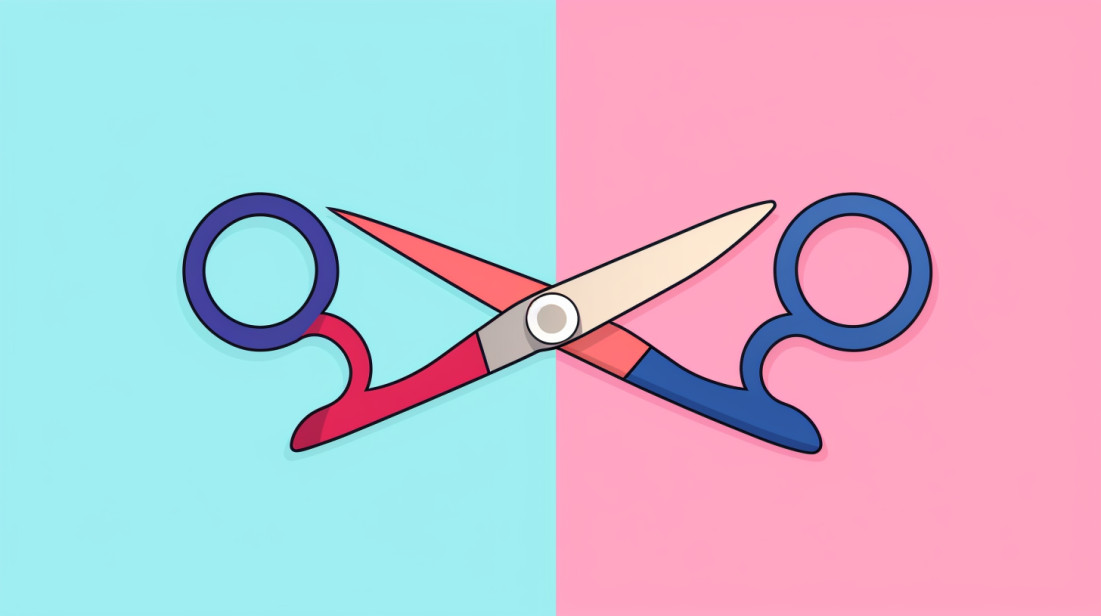Discover Top Ways to Save Money Fast – Quick Savings Guide

Money-saving is a crucial aspect of financial planning, especially when trying to achieve specific financial goals. Whether you are saving for an emergency fund, a down payment on a house, or a vacation, implementing some effective money-saving tips can go a long way. In this article, I will share the top ways to save money fast, including money-saving hacks, techniques, and strategies that you can use to achieve your financial goals.
By following these quick money-saving strategies, you can take control of your finances and build a bright financial future for yourself and your family. So, let’s dive in and explore the best money-saving methods that you can start implementing today to save money.
Key Takeaways
- Saving money is crucial for achieving financial goals.
- Implementing effective money-saving tips can help you take control of your finances.
- The top ways to save money fast include creating a budget, reducing monthly bills, cutting back on unnecessary expenses, automating your savings, shopping smart, reducing debt, and embracing a thrifty lifestyle.
Establish a Budget and Track Your Expenses
One of the most effective ways to save money quickly is to establish a budget and track your expenses. By creating a budget, you can get a clear picture of your income and expenses and identify areas where you can cut back and save money.
To establish a budget, start by listing all of your monthly income sources. This may include your salary, investment income, or any other sources of regular income. Next, make a list of all your monthly expenses, including bills, groceries, and discretionary spending. Be sure to include any irregular expenses like car maintenance or annual subscriptions.
Once you have a complete picture of your finances, use a budgeting tool or app to track your spending. This will help you see where your money is going and identify areas where you can cut back. For example, you may discover that you’re spending too much on eating out or subscription services.
To save money effectively, you need to be disciplined in your budgeting and spending habits. Set realistic goals for savings and stick to them. Make adjustments as necessary to ensure that you’re living within your means.
Remember, tracking your expenses and sticking to a budget may take some getting used to, but it can ultimately help you achieve your financial goals and save money quickly.
Tools and Apps to Help You Track Your Expenses

| App Name | Description |
|---|---|
| Mint | A free budgeting app that syncs with your bank accounts and credit cards to track your expenses and create a personalized budget. |
| You Need a Budget (YNAB) | A budgeting app that helps you create a budget and track your expenses in real-time. Provides educational resources and customer support. |
| PocketGuard | An intuitive budgeting app that tracks your income and expenses and analyzes your spending trends to help you save money. |
Establishing a budget and tracking your expenses is an essential part of saving money quickly. By taking control of your spending and sticking to a budget, you can identify areas where you can cut back and start building your savings. Use budgeting tools and apps to help you track your expenses and stay disciplined in your spending habits.
Reduce Your Monthly Bills
Reducing your monthly bills is one of the best ways to save money. With a little effort, you can make significant savings on your regular expenses. Here are some tips to help you get started:
1. Negotiate with Service Providers
When it comes to your bills, everything is negotiable. Don’t be afraid to call your service providers and ask for a better deal. Most companies are willing to work with you to keep your business. You can negotiate better rates for your internet, cable, phone, and other services.
2. Find Cheaper Alternatives
Do you really need all those premium channels on your cable TV? Can you switch to a cheaper internet plan? Look for alternatives that offer the same service at a lower price. You might be surprised at how much you can save.
3. Make Energy-Efficient Choices
Reduce your energy bill by making energy-efficient choices. Upgrade to energy-saving light bulbs and appliances. Turn off lights and appliances when not in use. Install a programmable thermostat to help regulate your heating and cooling systems efficiently. It can save you a lot of money in the long run.
4. Lower Insurance Premiums
Insurance is one of the biggest expenses that can eat into your budget. You can save money on insurance by comparing rates from different providers, raising your deductible, and asking for discounts. Bundling your home and auto insurance can also lead to significant savings.
5. Cut Down on Unnecessary Subscriptions
It’s easy to sign up for subscription services but harder to cancel them. Take a closer look at your monthly bills and identify subscriptions you don’t use or need. Cancel them and save yourself the money.
By implementing these tips, you can reduce your monthly bills and save money. It’s important to review your expenses regularly to identify areas you can cut back on and make changes accordingly. It may take some effort, but the savings can add up quickly.
Cut Back on Unnecessary Expenses

Reducing unnecessary expenses is a key strategy to save money. It may seem like common sense, but many people overlook the importance of evaluating their spending habits and making conscious choices to cut back on non-essential items and activities.
One effective way to cut back on expenses is by meal planning. By creating a weekly menu and shopping accordingly, you can avoid impulsive purchases and reduce food waste. Additionally, consider buying generic brands and shopping sales to save money on groceries. Small changes like these can add up to significant savings over time.
Another way to save money is by evaluating your subscription services. Are you paying for memberships or subscriptions that you don’t use or need? Cut back on these expenses and put that money towards your savings goals.
Finally, consider your entertainment and leisure activities. Are there ways to enjoy your hobbies or interests without spending a lot of money? Look for free or low-cost alternatives, such as community events or DIY projects.
By cutting back on unnecessary expenses, you can save significant amounts of money each month. With the money you save, you can pay off debt, build an emergency fund, or invest in your future. It may require some initial effort and sacrifice, but the long-term benefits are well worth it.
Automate Your Savings
If you want to save money without even thinking about it, automating your savings can be a game-changer. By setting up automatic transfers to a savings account, you can consistently save money without much effort. This is one of the most effective money-saving tips out there.
First, establish a savings goal and create a separate account for each goal. For example, you might set up one account for an emergency fund and another for a down payment on a house. Then, set up an automatic transfer from your checking account to each savings account on a regular schedule, such as weekly or monthly. This way, you won’t have to remember to make the transfer each time, and you’ll be less likely to spend the money instead.
There are also plenty of tools and apps available that can help you automate your savings. For example, some banks offer automatic savings plans, where you can set up a transfer to your savings account every time you make a purchase or receive a paycheck.
Remember to prioritize saving and make it a habit. Set a realistic savings goal, and once you’ve achieved it, set a new one. Automating your savings is an easy and effective way to help you reach your goals.
Using apps, budgeting and tracking your expenses, cutting back on unnecessary expenses, and automating your savings are all effective money-saving techniques that can help you achieve your financial goals. In the next sections, we’ll discuss more ways to save money fast.
Shop Smart and Use Discounts

When it comes to saving money, shopping smartly and taking advantage of discounts can make a significant difference. Here are some of the best ways to save money by shopping smart and using discounts:
Compare Prices
Before making a purchase, it’s always a good idea to compare prices. You can do this by checking out different stores, both online and in-person. You can also use price comparison websites and apps to find the best deals.
Use Coupon Codes and Cashback Websites
Another way to save money is by using coupon codes and cashback websites. Many websites offer coupon codes that you can use to get discounts on your purchases. Additionally, cashback sites give you cash back on your purchases, which can add up over time.
Take Advantage of Loyalty Programs
If you frequently shop at a particular store, signing up for their loyalty program can be a great way to save money. Many programs offer exclusive discounts, rewards, and promotions to their members.
Buy in Bulk
Buying in bulk is another great way to save money, especially on items that you use regularly. By purchasing in larger quantities, you can often get a lower price per unit. Just be sure to only buy what you will actually use, so you don’t end up wasting money on unused items.
Wait for Sales
Finally, one of the easiest ways to save money while shopping is to wait for sales. Many stores offer discounts and promotions throughout the year, so timing your purchases can help you get the best deals.
Reduce Debt and Interest Payments
Reducing debt and interest payments is a crucial step towards achieving financial stability. Here are some effective money-saving tips to help you:
Prioritize and Pay Off High-Interest Debts
If you have multiple debts, prioritize paying off the ones with the highest interest rates first. By doing so, you can save money on interest payments in the long run. Consider using the debt avalanche method, which involves paying off debts in order of their interest rates, starting with the highest one.
Negotiate Lower Interest Rates
Don’t be afraid to negotiate with your creditors or lenders for lower interest rates. Call them up and explain your situation, and they may be willing to reduce your interest rates or fees. This could potentially save you hundreds or even thousands of dollars over the course of your debts.
Consolidate Debts
If you have multiple debts with high-interest rates, consolidating them into one loan with a lower interest rate can help you save money on interest payments. Consider taking out a personal loan or a balance transfer credit card with a 0% APR introductory period to consolidate your debts.
Avoid Unnecessary Debt

One of the best ways to reduce interest payments is to avoid unnecessary debt in the first place. Before making a large purchase, consider if you really need it or if it’s worth going into debt for. Additionally, make sure you have an emergency fund to cover unexpected expenses, so you don’t have to rely on credit cards or loans.
By following these money-saving techniques, you can reduce your debt and interest payments and achieve financial freedom. Take action today and start making positive changes to your finances.
Save on Transportation Costs
Transportation costs can add up quickly and put a strain on your budget, but there are ways to save money without sacrificing convenience. Here are some money-saving tips for reducing transportation expenses:
Carpool or Use Public Transportation
Consider carpooling with coworkers or friends to split the cost of gas and maintenance. Using public transportation can also save you money on fuel and parking fees. Plus, it can be more relaxing than dealing with traffic and road rage.
Bike or Walk When Possible
If you live close to your workplace or frequently visited places, consider biking or walking instead of driving. This can not only save you money on transportation costs but also improve your health and well-being.
Find Cheaper Car Insurance
Shop around for car insurance to find the best rates. Consider raising your deductible to lower your premiums, but make sure you have enough savings to cover it in case of an accident. Also, look for discounts through your employer, club memberships, or good driving records.
Optimize Your Commute
If you need to drive, plan your route to avoid tolls and heavy traffic. Use GPS or traffic apps to find the quickest and most efficient way to get to your destination. Also, try to consolidate your errands and appointments to reduce the number of trips you need to make.
Explore Alternative Transportation

Consider renting a car or using a car-sharing service like Zipcar instead of owning a car. This can save you money on monthly payments, insurance, and maintenance. Additionally, you can try new and exciting transportation options like electric scooters or rental bikes.
By implementing these tips, you can significantly reduce your transportation costs and save money for other important expenses. Remember, every dollar saved counts!
What Are Some Effective Tips for College Students to Save Money Quickly?
Looking to save money while in college? Here are some effective money-saving tips for college students. First, create a budget to track your expenses and prioritize needs over wants. Utilize student discounts whenever possible and look for free or inexpensive alternatives for entertainment. Consider buying used textbooks or renting them. Lastly, cook at home instead of eating out and save on unnecessary expenses. Saving money while in college is possible with these practical tips.
Embrace a Thrifty Lifestyle
Living a thrifty lifestyle is not just about cutting back on expenses; it’s about making conscious choices that align with your values and priorities. By embracing frugality, you can save money, reduce stress, and live a more fulfilling life. Here are some effective money-saving tips to help you embrace a thrifty lifestyle:
- Find joy in experiences, not possessions: Instead of spending money on material possessions, focus on experiences that bring you happiness. Take a hike, have a picnic, or explore your city’s free activities.
- Learn to DIY: Do-it-yourself projects can save you money and provide a sense of accomplishment. From fixing a leaky faucet to making your own cleaning supplies, there are endless opportunities to be thrifty and resourceful.
- Shop second-hand: Thrift stores, consignment shops, and online marketplaces like Craigslist can provide great deals on gently used items. Not only can you save money, but you can also reduce waste by giving pre-owned items a new life.
- Avoid impulse purchases: Before making a purchase, ask yourself if you really need it. Take some time to think about the purchase and consider if it aligns with your values and priorities.
- Cut down on food waste: Meal planning and smart grocery shopping can help reduce food waste and save you money. Plan your meals, make a list, and stick to it to avoid unnecessary purchases.
By embracing a thrifty lifestyle, you can live a fulfilling life while saving money and reducing stress. Remember, being thrifty is not about deprivation, but rather about making conscious, intentional choices that align with your values.

Conclusion
There you have it – my top ways to save money fast! By implementing these quick money-saving strategies, you can significantly improve your financial well-being and achieve your goals. Remember, saving money is all about being smart and making conscious choices. It doesn’t require a huge income or a lot of effort, just a little discipline and dedication.
Creating a budget and tracking your expenses is the foundation of successful money management. From there, you can reduce your monthly bills, cut back on unnecessary expenses, and automate your savings. Shopping smart, using discounts, and reducing debt and interest payments can also make a big difference in your bottom line. Finally, embracing a thrifty lifestyle can help you find joy in experiences and save money on material possessions.
I encourage you to start implementing these money saving techniques today. Remember, every dollar counts and every small step can lead to big savings. Whether you’re saving for a specific goal or just want to improve your financial situation, these tips will help you get there.
Take Action Now!
Don’t wait any longer – start saving money today! Pick one strategy from this list and commit to it for the next month. See how much money you can save and then build on that success. Together, we can all achieve our financial goals and live a happier, more prosperous life.
FAQ
Q: What are the top ways to save money fast?
A: The top ways to save money fast include establishing a budget, reducing monthly bills, cutting back on unnecessary expenses, automating your savings, shopping smart, reducing debt, saving on transportation costs, and embracing a thrifty lifestyle.
Q: Why is it important to establish a budget and track expenses?
A: Establishing a budget helps you understand your spending habits and identify areas where you can cut back. Tracking your expenses allows you to see where your money is going and make necessary adjustments to save more.
Q: How can I reduce my monthly bills?
A: You can reduce your monthly bills by negotiating with service providers, finding cheaper alternatives, making energy-efficient choices, lowering insurance premiums, and cutting down on unnecessary subscriptions.
Q: What can I do to cut back on unnecessary expenses?
A: To cut back on unnecessary expenses, evaluate your spending habits, make conscious choices to reduce non-essential items and activities, plan meals and shop smartly, and avoid impulse purchases.
Q: How can I automate my savings?
A: You can automate your savings by setting up automatic transfers to a savings account, creating separate savings goals, and leveraging technology to consistently save without much effort. Prioritizing saving and making it a habit is also essential.
Q: What strategies can I use to shop smart and use discounts?
A: You can shop smart and use discounts by comparing prices, using coupon codes and cashback websites, taking advantage of loyalty programs, buying in bulk, and waiting for sales.
Q: How can I reduce debt and interest payments?
A: To reduce debt and interest payments, prioritize and pay off high-interest debts, negotiate lower interest rates, consolidate debts if necessary, avoid unnecessary debt, and make smarter financial decisions.
Q: What are some ways to save on transportation costs?
A: You can save on transportation costs by carpooling, using public transportation, or biking. Finding cheaper car insurance, optimizing your commute, and exploring alternative modes of transportation can also help save money.
Q: How can I embrace a thrifty lifestyle?
A: Embracing a thrifty lifestyle involves avoiding impulse purchases, finding joy in experiences rather than material possessions, engaging in DIY projects, second-hand shopping, and reducing waste.






